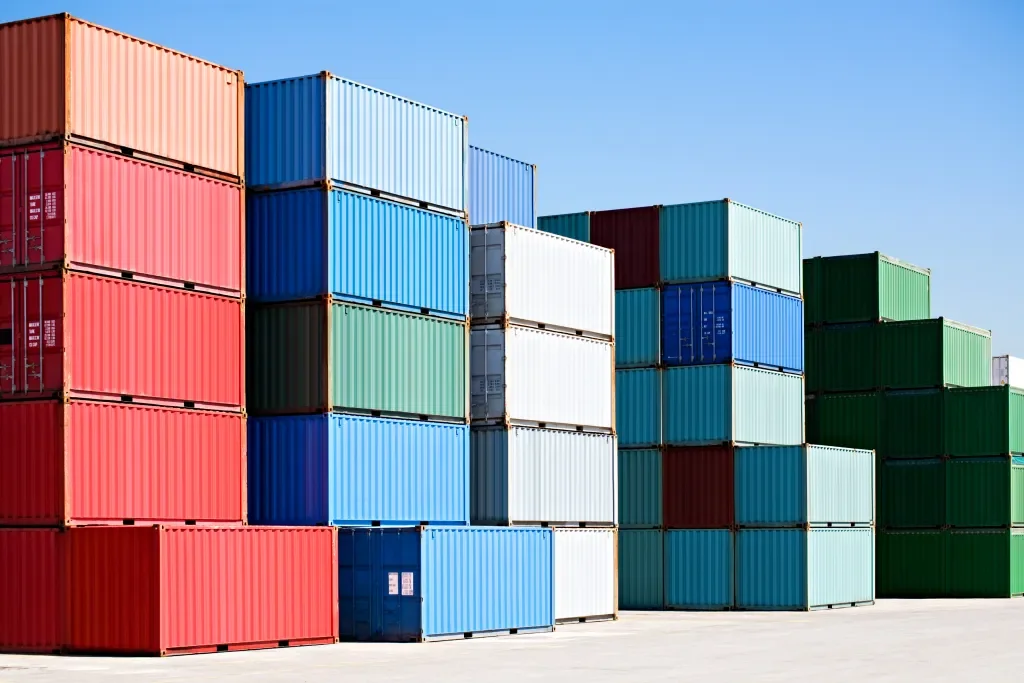Buying vs Renting a Shipping Container: A Comparison Guide
Explore the pros & cons of renting vs. buying a shipping container with our comprehensive guide.

Before buying or renting a shipping container, whether it’s for additional retail space or to store construction materials on a job site, there are several factors you need to consider. Your budget, timeframe, and scalability are key considerations that can influence your decision to buy or rent a container. In this comprehensive guide, we’ll cover the advantages and disadvantages of renting versus buying a shipping container, highlighting important considerations to help you make an informed decision.
Understanding Your Shipping Container Needs
When considering shipping container solutions, the first step is to identify your specific needs and the primary purpose of the container(s). Are you using it for storage, transportation, or other unique transformations?
It’s also important to consider how long you need the container, how much you’re willing to spend on it, and whether you’ll need additional containers as your project grows, or if one container will suffice.
By having a clear understanding of these factors, you can better evaluate the benefits and drawbacks of each option.
The Benefits of Renting Shipping Containers
Renting shipping containers can be a convenient option for short-term projects and temporary storage needs. One of the key advantages is the flexibility it offers and its cost-effectiveness. With container rentals, it’s easier to increase or reduce the number of containers you have, depending on the needs of your project, without having to purchase them. For example, if your business experiences seasonal fluctuations in demand, renting allows you to adjust your container needs accordingly. This flexibility can translate into significant savings for your business.
Another benefit of renting is the maintenance and repair responsibilities. Renting from a reputable provider often includes maintenance and repairs in the rental agreement. If any issues arise, you can rely on the provider to address them promptly. This saves you time, effort, and additional costs.
The Drawbacks of Renting Shipping Containers
While the flexibility and lower upfront costs of renting a shipping container are appealing, there are some drawbacks to consider. If you need a container for a long-term project, the cumulative cost of renting can surpass the one-time expense of purchasing a container. This is particularly significant for long-term projects, where recurring monthly rental fees may eventually outweigh the initial investment of buying. Another challenge with renting is the constraint on modifications. Rental agreements typically have strict rules against altering the container, limiting its use to its original condition. This can be a significant disadvantage for projects that require specialized modifications or container customizations to meet specific operational needs. Whether it’s cutting windows, adding ventilation, or painting, these alterations are often not permissible with rented containers, thereby restricting their functionality and potentially impacting the efficiency of their use in certain projects. Additionally, when renting, you are limited by the availability of containers from the rental provider. During peak seasons or high-demand periods, you may face difficulties in securing the specific container you need. This uncertainty can disrupt project timelines and overall efficiency.
Buying a Shipping Container
If you prioritize long-term value and independence, opting to purchase a shipping container might be the right choice for you. Buying a container gives you complete control, allowing you to customize it according to your specific needs and requirements. This flexibility is great for building projects and use cases that require custom modifications such as insulation, ventilation and extensive adjustments for comfortable living spaces.
While the initial cost of acquiring a container may seem steep, it is a one-time investment that can be more economical throughout its use, especially for ongoing or multiple projects. Additionally, the market for containers includes options for both new and used units that fit different project requirements and budget constraints. Used containers can offer considerable savings, and with proper maintenance, can provide the same utility as a new unit for a fraction of the price.
One important factor often overlooked when deciding between renting and buying shipping containers is the potential for resale and the inherent reusability of these units. As the trend for repurposing shipping containers for alternative uses continues to grow—from innovative housing solutions to unique retail spaces—their value and demand in the resale market also increase. Owning a shipping container allows you to recoup a portion of the initial cost by selling it after use, adding another layer of value to your investment.
Making the Right Choice: Renting versus Buying a Shipping Container
When deciding whether to rent or buy a shipping container, it’s important to note that both options have their advantages and disadvantages, but the best choice is the one that aligns closely with your project’s operational goals and financial structure.
Renting is an ideal choice for projects that have changing requirements, a shorter duration, or require a temporary solution without worrying about maintenance and storage after use. It’s also more flexible, as it involves lower upfront costs and comes with professional delivery and pick-up services, which are critical for tight schedules and precise placement needs.
On the other hand, if you need to use a container for an extended period or frequently, it may be more practical to buy one instead of renting it. Though the initial cost may be higher, you will have more flexibility to modify it according to your specific project requirements, without any limitations, and have constant access to it. Additionally, you can resell or repurpose it for future projects.
Lastly, when considering shipping containers, it’s important to explore the market options available to you. This includes the cost and conditions of containers, as well as the reliability and reputation of suppliers. Depending on your location, you may have different options available to you when it comes to renting or buying shipping containers. We recommend being thorough with your research and working with a trusted provider like Calebwedman that can meet your specific needs.
